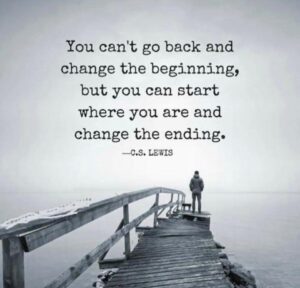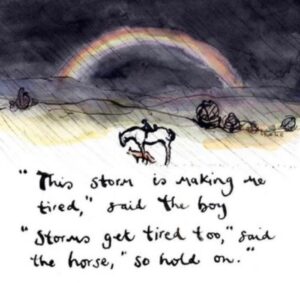 I have to admit I felt sadness when I read this quote.
I have to admit I felt sadness when I read this quote.
I expect you too, have had interpersonal disputes that occur in your life for which you expected an apology that didn’t materialize. The reality that it may never be can cause us much grief and much anger, too. It can fill us with all sorts of other feelings – deep regret, loss, shame, feelings of betrayal and pervasive emptiness. We might experience confusion and self-blame – wondering how we could have been so wrong about the other person. The anger is often not only at the other person but, at ourselves. We may agonize for all sorts of things – replaying the scenario over and over and knowing we cannot take back things we said or did. These and the many other emotional and even, physical repercussions remain in our hearts and mind when our hope for an apology remains unspoken.
What makes the unmet need for an apology even worse is that in many cases an apology does or would not heal the indelible scar that remains. It isn’t enough. Healing remains elusive. And we realize the real work to be done is to identify what we need to truly heal us and even, to accept that the scar might never be erased. Whether the roots of the scar go back in time, whether they are related to the other person in this dispute or someone else, whether the layers are too deep to count…
At times I have hoped for an apology – ones that may be enough and ones that wouldn’t be – I have found it helpful to ask myself some questions such as these in the week’s Conflict Mastery Quest(ions) blog. I invite you to consider a situation when you haven’t received an apology you hoped for – and you are wondering if one will happen – and you also know at some level of consciousness that it may not be enough.
- What happened between you and the other person?
- What was the hardest part of that conflict for you?
- What part would you like to do over (things you might say or do differently)?
- What did that person say or do for which you feel an apology is warranted?
- How might you describe the impact you are experiencing – emotional, physical, etc. – regarding your answer to the previous question?
- For what might the other person be sorry regarding the dispute you had – if you think they may regret what they said or did?
- If the person was to apologize what would you hope they would say?
- Would that be enough? If not, what would be?
- How would an apology heal about what occurred? What might remain unreconciled for you regarding the dispute even with an apology?
- What needs to heal for you that would not be healed by an apology in this conflict?
- What else occurs to you as you consider these questions?
- What insights do you have now that you didn’t have before you answered these questions?



 This quote applies to just about everything I guess 😊 And, it is used here in our conversation today as it relates to interpersonal conflict.
This quote applies to just about everything I guess 😊 And, it is used here in our conversation today as it relates to interpersonal conflict. In a wonderful book entitled The Boy, the Mole, the Fox and the Horse by Charlie Mackesy, there are many quotes in it that touch me. One of them shows a boy on a horse and he clearly looks beleaguered. He says “This storm is making me tired”, to which the horse replies “Storms get tired too. So, hold on”. And this week’s Conflict Master Quest(ions) blog considers the storms we experience when we are in conflict and what that feels like.
In a wonderful book entitled The Boy, the Mole, the Fox and the Horse by Charlie Mackesy, there are many quotes in it that touch me. One of them shows a boy on a horse and he clearly looks beleaguered. He says “This storm is making me tired”, to which the horse replies “Storms get tired too. So, hold on”. And this week’s Conflict Master Quest(ions) blog considers the storms we experience when we are in conflict and what that feels like.